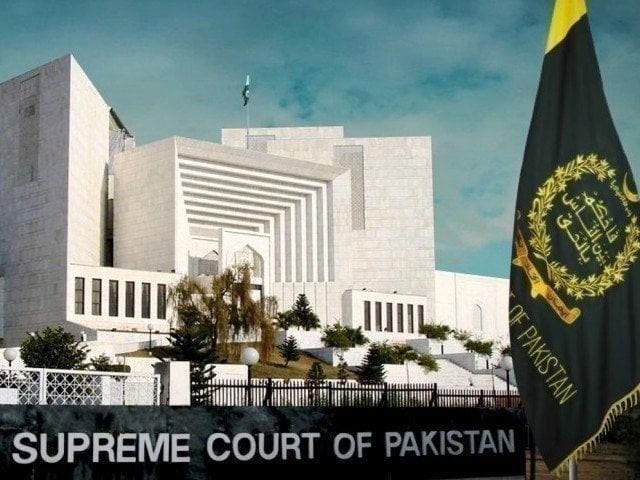Govt moves SC over banks' 15% tax dispute
FBR estimates tax at Rs100b while tax advisory firm puts figure at Rs197b

The federal government has decided to knock on the door of the Supreme Court (SC) of Pakistan to vacate a stay order granted by the Islamabad High Court (IHC) against a 15% additional income tax being charged on banks' excessive lending to the finance ministry.
The decision to file a Civil Petition for Leave to Appeal (CPLA) within this week was taken in light of the looming tax collection deadline from commercial banks.
The Federal Board of Revenue (FBR) faces an uphill task to recover Rs1.03 trillion in November after a Rs190 billion shortfall in the first four months of this fiscal year. This month, the IHC granted a stay order to a bank, further complicating the FBR's efforts to overcome the shortfall.
The FBR has estimated the additional income tax at Rs100 billion, while a tax advisory firm has put the figure at Rs197 billion. However, the actual impact may now be far less than Rs197 billion as banks have started imposing fees of around 5% on depositors to force them to withdraw large deposits and avoid the tax before the calculation deadline of December 31.
On Tuesday, the FBR briefed Finance Minister Muhammad Aurangzeb that the IHC had granted a stay order to Askari Bank Limited against the 10% to 15% additional income tax being charged on the basis of the advance-to-deposit ratio (ADR). Other banks are also poised to follow suit.
The finance minister was informed that the FBR would file a Civil Petition for Leave to Appeal (CPLA) in the SC this week. The CPLA is an application to a higher court for permission to appeal a lower court's decision.
This month, the IHC barred the FBR from taking any "coercive action" against the commercial bank based on calculations made under Rule 6C (6A) of the seventh schedule of the Income Tax Ordinance.
The court also served notices to the finance ministry, the FBR chairman and his team, directing them to file a report and provide para-wise comments within two weeks. The case is fixed for December 3. When contacted, FBR spokesperson Muhammad Bakhtiar said, "The FBR has engaged a competent lawyer to contest the stay in the SC and the high court." On whether the revenue impact is between Rs150 billion and Rs200 billion, he said, "Estimation of the quantum of revenue is not possible at this stage."
The additional income tax was introduced in 2022 to encourage banks to lend to industries instead of extending safe loans to the government. Banks often avoid the levy by readjusting their lending to the government just before the December 31 tax payment deadline.
Under pressure from banks, the government suspended the additional tax for 2023, but it became effective again in January 2024. The normal income tax rate for banks is 39%. However, if a bank's gross ADR is up to 40%, the government charges a 55% income tax on investment in government debt.
The petitioner bank argued before the court that the FBR sought to tax income derived from lending to the federal government based on the gross advances-to-deposit ratio. The petitioner contended that the government was trying to regulate banking business through additional taxation, which was beyond the scope of a Money Bill and violated Article 73 of the Constitution.
The petitioner also argued that loans extended to the federal government had not matured during the current fiscal year and that the additional tax could not be applied retrospectively. The development comes amid the government's resolve to expedite court cases, with the new chief justice of Pakistan assuring cooperation.
The additional income tax on banks is among the top priority cases, alongside the super tax, where 580 petitions involving Rs150 billion in revenues remain pending. Banks sought court intervention after attempts to abolish the tax in the last budget were blocked.
The petitioner further argued that Rule 6C conflicted with Section 46B (3) of the State Bank of Pakistan Act of 1956, asserting that only the central bank could dictate banking policies.
Tola Associates estimated that banks would have to pay an additional Rs197 billion in income tax due to excessive lending to the federal government. In its Economy Alert last month, Tola Associates reported that 27 domestic and foreign banks operating in Pakistan might incur this additional liability based on ADR calculations.
However, these estimates were made before banks started reducing deposits to lower their tax liabilities ahead of the deadline. The banks' overwhelming balance sheets are invested in government debt, and the law requires additional taxation if lending to the private sector falls below a certain threshold.



















COMMENTS
Comments are moderated and generally will be posted if they are on-topic and not abusive.
For more information, please see our Comments FAQ